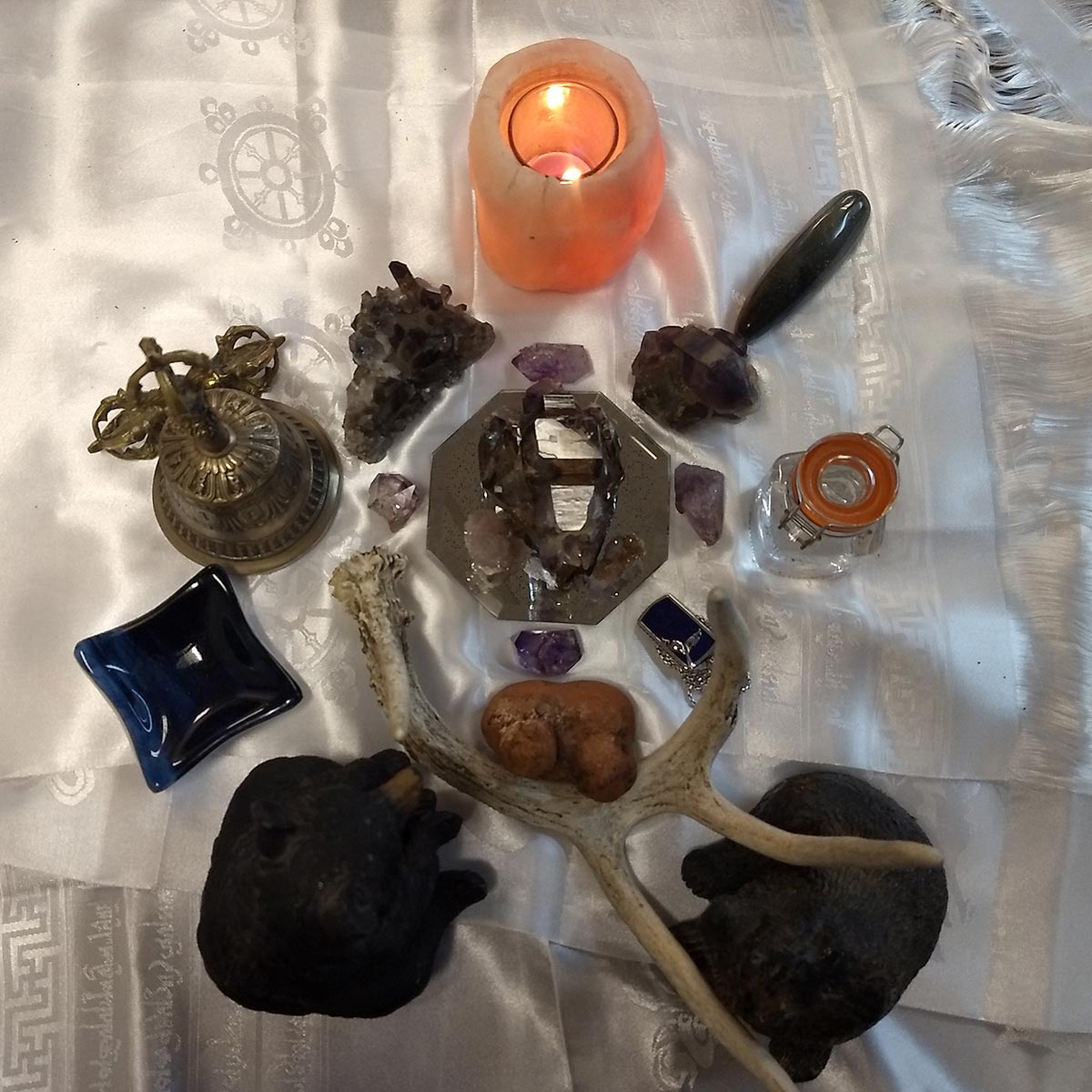Have you ever wondered why we dream, what dreams mean, or how they affect our waking lives? If so, you’re not alone. Throughout history, people have been captivated by dreams and their significance, an interest that permeates various cultures, religions, and philosophies.
Contents
Dreams, as we understand them, are sequences of images, ideas, emotions, and sensations that occur involuntarily in the mind during certain stages of sleep. They are a universal human experience – everyone dreams, albeit with varying frequencies and intensities. From surreal, bizarre scenarios to vividly realistic situations, dreams are as diverse as they are mysterious.
The Cultural and Historical Perspective: Dreams and Their Symbolism
Across time and cultures, dreams have been considered as omens, divine messages, or gateways to alternate realities. Ancient Egyptians, for instance, believed dreams were prophetic, offering insights into future events. Native American tribes viewed dreams as spiritual journeys, providing guidance and wisdom. Even in modern times, psychoanalysts like Sigmund Freud and Carl Jung asserted that dreams were reflections of subconscious desires and fears, serving as a window into our deepest selves.
While these interpretations vary significantly, they all underscore the ubiquitous fascination with dreams and their potential meanings. As we explore further, we shall examine the various types of dreams reported by proficient dreamers, their possible interpretations, and the implications of these dream experiences.
The History of Dreams and Their Significance to Different Cultures
From the dawn of civilization, dreams have intrigued, perplexed, and provided insight to cultures around the world. They have been viewed as messages from deities, glimpses into the future, or simply the product of an overactive mind. The understanding of dreams and their significance has evolved over time, reflecting shifts in cultural, spiritual, and scientific paradigms.
The Ancient Egyptians
The ancient Egyptians, for instance, held dreams in high regard; they were considered revelations from the gods. Their dream interpreters, often priests or wise women, were revered figures within the community. In the Egyptian Dream Book (a papyrus dating back to the reign of Ramesses II), dreams and their interpretations were meticulously recorded, highlighting their importance in this ancient society.
“To dream of oneself drinking beer, and then having one’s clothes taken away, means that the dreamer will be the victim of malicious gossip.”
~The Egyptian Dream Book
The Greeks
On the other hand, classical Greek society viewed dreams as direct messages from the gods or dead souls. In Greek mythology, Morpheus, the god of dreams, was believed to deliver these divine messages, and the Greeks built sanctuaries where individuals could sleep and receive prophetic dreams. These locations were known as Asklepieia, named after the god of medicine, Asklepios.
In stark contrast, during the Middle Ages in Europe, dreams were often considered the devil’s work, a stark reflection of the religious fervor that characterized this period. They were seen as temptations or deceptions, leading individuals astray from the path of righteousness.
Psychoanalysis
However, the advent of psychoanalysis in the 19th and early 20th centuries, pioneered by figures like Sigmund Freud and Carl Jung, marked a significant shift in the understanding of dreams. Freud, in his groundbreaking work The Interpretation of Dreams, posited that dreams were a window into the unconscious mind, revealing repressed desires and fears. His contemporary, Carl Jung, while agreeing on the unconscious aspect, believed dreams to be more than just repressed desires. He proposed the concept of the collective unconscious, asserting that dreams tapped into universal archetypes and symbols.
“Dreams are the guiding words of the soul.”
~Carl Jung
Today, the scientific community generally perceives dreams as a byproduct of brain activity during sleep, with theories ranging from memory consolidation to emotional regulation. Nevertheless, the mystery surrounding dreams continues to captivate us, straddling the line between science and spirituality.
The Different Types of Dreams and How They Are Classified
As we delve deeper into this fascinating world of dreams, the first point to examine is the variety of dream types reported by proficient dreamers and how they are classified. Understanding these classes can offer a profound insight into the underlying psychological, neurological, and even metaphysical aspects of dreaming.
The Common Types of Dreams
Commonly, there are five types of dreams that have been recognized by the majority of researchers and dream interpreters (though the boundaries between these categories can often be fluid).
- Normal Dreams – These dreams typically occur during the REM (Rapid eye movement) stage of sleep, where the brain activity is high, much like when we are awake. Normal dreams are usually reflections of our daily life, events, and emotions, and hence, they might not seem very bizarre or surreal.
- Nightmares – Nightmares are those distressing dreams that can cause a wide range of negative emotions, including fear, anxiety, sadness, and despair. They are often a manifestation of the stress and trauma one has been dealing with in their waking life.
- Lucid Dreams – Lucid dreams are quite unique in the sense that the dreamer is aware that they are dreaming. This awareness can sometimes give them the power to control their dream narrative, characters, and environment.
- Recurring Dreams – These are dreams that occur over and over again, with the same or very similar narrative. Recurring dreams often indicate unresolved issues or deeply ingrained patterns in an individual’s life.
- Prophetic Dreams – Also known as precognitive dreams, these are dreams that seem to foretell future events. While the scientific community is skeptical about their validity, many anecdotal stories and cultures worldwide do believe in the prophetic nature of some dreams.
The Classification of Dreams
While these five categories broadly cover the types of dreams, some psychologists and dream researchers have taken it a step further by classifying them based on their content, emotional tone, or the dreamer’s involvement. Calvin S. Hall, an eminent psychologist, proposed a system of classification that includes:
- Wishful Thinking Dreams – These are dreams that depict desires and wishes that the dreamer might not be able to fulfil in their waking life.
- Problem-Solving Dreams – In these dreams, the dreamer might find solutions to their problems or dilemmas they are facing in their real life.
- Fear Dreams – These dreams, much like nightmares, are driven by fear and anxiety, often linked to the insecurities and worries of the dreamer.
- Rehearsal Dreams – In such dreams, the dreamer often rehearses or goes through a situation that they anticipate in their waking life.
Understanding these types and classifications of dreams can help us better interpret our dreams and uncover the hidden messages or insights they may hold. After all, dreams are not just random byproducts of sleep; they can be reflections of our inner psyche and our deepest desires, fears, and aspirations.
Lucid Dreaming: What It Is and How to Do It
As we delve deeper into the world of dreams, we encounter a fascinating phenomenon known as ‘Lucid Dreaming’. This type of dream, especially prevalent among proficient dreamers, is characterized by the dreamer’s awareness that they are indeed dreaming. A lucid dreamer is not merely a passive observer but an active participant, wielding control over the dream’s narrative and environment to a certain extent.
Lucid dreaming has a rich historical backdrop. Ancient Buddhist and Hindu scriptures reference the practice of dream yoga, a spiritual discipline that bears striking similarities to lucid dreaming. Additionally, Aristotle’s writings (in his treatise ‘On Dreams’) suggest the philosopher’s awareness of the concept, hinting at its existence in classical antiquity.
The Science Behind Lucid Dreaming
Scientifically, lucid dreaming is associated with high levels of activity in the prefrontal cortex, a brain region implicated in executive functions such as self-reflection and metacognition (thinking about one’s thoughts). This heightened activity explains why lucid dreamers retain a level of conscious control within their dreams. In 1975, psychologist Keith Hearne provided empirical evidence for lucid dreaming through EEG (Electroencephalogram) studies, forever validating the phenomenon in the realm of legitimate scientific inquiry.
How to Induce Lucid Dreaming
Many dream enthusiasts and researchers alike have proposed techniques to induce lucid dreaming. Some of these methods include:
- Mnemonic Induction of Lucid Dreams (MILD): This technique involves waking up during a dream and falling back asleep while focusing on the intention to remember that you’re dreaming.
- Wake Back to Bed (WBTB): Here, the dreamer wakes up for 20-30 minutes after five to six hours of sleep, then goes back to sleep, increasing the chances of entering a REM sleep phase where dreams, especially lucid ones, are more likely.
- Reality Testing: Regularly checking during the day if you’re dreaming can train your mind to do the same while dreaming, thereby inducing lucidity.
While these techniques may increase the likelihood of lucid dreaming, it’s essential to remember that individual experiences vary, and there’s no guaranteed method for everyone.
Authors Note: In my many years experience testing the boundaries of the dream state, I’ve found that simply waking and not moving the body has the highest likelihood of lucid dreaming. Moving the body tells the brain that you’re awake, however, by not moving the body, you can trick the brain into thinking you’re still asleep. Relax the mind and practice at not thinking but rather just experiencing what is, similar to meditation and mindfulness practice.
The Benefits of Lucid Dreaming
Lucid dreaming isn’t just a curious oddity of the human mind; it holds potential benefits too. It can serve as a tool for personal growth, offering unique opportunities for introspection and self-discovery. In a therapeutic context, it can be utilized to confront and overcome nightmares or phobias in a safe environment. Some researchers even propose its use in developing creativity and problem-solving skills, given the unrestricted nature of the dream world.
However, like any exploration of the mind, lucid dreaming should be approached with respect and caution. It’s important to maintain a balanced perspective and not get lost in the pursuit of dream control, remembering that dreams also serve as an important avenue for subconscious processing and emotional regulation.
Lucid dreaming represents a fascinating intersection of consciousness and unconsciousness, offering a glimpse into the incredible complexity and potential of the human mind. Whether you’re a proficient dreamer or a curious novice, exploring the realm of lucid dreams can open up new perspectives and insights.
Nightmares: Causes, Effects, and How to Overcome Them
When we delve into the world of dreams, one type that often ignites fear and anxiety in the minds of dreamers is the notorious ‘nightmare’. The term nightmare, originating from the Old English ‘mare’ (a mythological demon or goblin who torments others with frightening dreams), is used in modern language to describe any dreams which bring about feelings of terror, despair, distress or extreme anxiety.
Causes of Nightmares
Nightmares are often triggered by a variety of factors, many of which are closely connected to our waking life. Stress and anxiety are two common culprits (think of a significant job interview or an upcoming exam). However, they may also be caused by more complex issues such as trauma or post-traumatic stress disorder (PTSD). Certain medications, substance abuse, and sleep disorders, like sleep apnea, can also contribute to the occurrence of nightmares.
Effects of Nightmares
The effects of nightmares extend beyond the dream world and seep into our waking lives. Persistent nightmares can lead to sleep deprivation, increased anxiety, depression, and even post-traumatic stress disorder (PTSD). They can impede our daily functioning, causing us to experience difficulty concentrating, fatigue, and irritability. Over time, if left unaddressed, these effects can become chronic, profoundly impacting an individual’s quality of life.
Overcoming Nightmares
As daunting as nightmares may appear, there are several techniques and strategies that individuals can employ to overcome them. Cognitive behavioral therapy (CBT) is a popular method and has proven effective in reducing the occurrence and severity of nightmares. This form of therapy involves changing the thought patterns that lead to unwanted behavior patterns – in this case, nightmares.
Another helpful approach is imagery rehearsal therapy (IRT), where the dreamer rewrites the narrative of their nightmare while awake, converting it into a more positive or neutral story. Practicing this new narrative can help reduce the distress associated with the nightmare and even alter the dream itself over time.
Finally, maintaining good sleep hygiene is crucial in preventing nightmares. This includes having a regular sleep schedule, creating a restful environment, and avoiding caffeine, alcohol, and heavy meals close to bedtime.
In the mysterious and fascinating world of dreams, nightmares serve as a stark reminder of our subconscious fears and anxieties. Yet, with the right strategies, they can be transformed from terrifying nocturnal interruptions into valuable tools for self-reflection and personal growth.
Prophetic Dreams: Are They Real and How to Interpret Them?
As we delve deeper into the world of dreams, one particularly intriguing type is the prophetic dream. These are dreams that seemingly predict future events, a concept which, although widely debated among scientists and dream researchers, holds a fascinating place in our cultural and historical narratives.
Are prophetic dreams real? In the strictest scientific sense, there’s currently no definitive evidence to support the existence of prophetic dreams (i.e., dreams that accurately foretell future events). Despite this, countless individuals around the globe report experiences that can only be described as eerily prophetic, adding a layer of mystique to our understanding of dreams.
Interpreting Prophetic Dreams
Interpreting prophetic dreams, much like interpreting any type of dream, can be a complex process. Dreams often operate on a symbolic level, their meanings obfuscated by layers of personal and cultural symbolism. Herein lies the challenge (and the allure) of dream interpretation.
“Dreams are the royal road to the unconscious.”
~Sigmund Freud
Freud’s famous statement underscores the widely held belief that dreams can provide significant insights into our inner thoughts, fears, and desires. In the context of prophetic dreams, these insights may be related to future events or situations, perhaps reflecting our subconscious anticipations or anxieties.
For those interested in exploring their own prophetic dreams, I offer the following suggestions:
- Keep a dream journal: Documenting your dreams as soon as you wake up can help you remember details that might seem insignificant but could hold significant meaning.
- Look for personal symbols: Pay attention to recurring themes, people, or objects in your dreams. These could be unique to you and your experiences, and therefore, could hold important clues to interpreting your dreams. Build a symbol library because although they may be universal symbols occurring your dreams, the majority are peronsal to your thoughts and feelings about every object, color, location, and person in your dreams.
- Consider the feelings evoked: Emotions in dreams are often as important as the dream content itself. Reflect on the emotions you felt during the dream and upon waking.
Despite the lack of scientific consensus, the concept of prophetic dreams continues to captivate us. Whether they are real or not, these dreams provide us with a unique window into the labyrinth of the subconscious mind, offering potential clues about our thoughts, fears, and hopes for the future.
Recurring Dreams: Why Do They Happen and What Do They Mean?
When we delve into the realm of recurring dreams, we find ourselves entering a fascinating and somewhat enigmatic territory. Recurring dreams (those that happen over and over again, often with a similar narrative or theme) are a common phenomenon experienced by many proficient dreamers. They are of particular interest not only due to their repetitive nature, but because they often carry with them profound and meaningful messages.
So why do recurring dreams occur? While there is still much that remains unknown in the realm of dream research, I hold firm to the belief that recurring dreams serve as a form of nocturnal therapy. They are our subconscious mind’s attempt at processing unresolved issues, conflicts, or traumas. This is a perspective reinforced by renowned dream researchers like Ernest Hartmann (a professor of psychiatry at Tufts University School of Medicine), who proposed that recurring dreams are a reflection of unresolved emotional preoccupations.
“Recurring dreams are a reflection of unresolved emotional preoccupations.”
~Ernest Hartmann
What Recurring Dreams Mean
Now let’s turn our attention to the question of what recurring dreams mean. There is no one-size-fits-all answer to this, as the content and context of each dream can vary greatly from one individual to the next. However, through my years of studying and teaching about dreams, I have come to see recurring dreams as the subconscious mind’s attempt to draw our attention to something significant. They are a call to action, urging us to address and resolve the situation, issue, or conflict that is causing them.
This perspective aligns with Carl Jung’s theory of dreams, in which he suggests that dreams (including recurring ones) are a way for our unconscious mind to communicate with our conscious self. They can be seen as a form of self-regulation and a means to achieve psychological balance.
Here are some common types of recurring dreams and their potential meanings:
- Nightmares: Often indicative of unresolved fears or trauma.
- Chase Dreams: May symbolize avoidance or denial of an issue.
- Falling Dreams: Could represent a sense of losing control or fear of failure.
- Teeth Falling Out: Often associated with anxiety, insecurity, or transition.
Of course, these interpretations can vary greatly depending on the dreamer’s personal circumstances and experiences. It is important to remember that dreams are highly personal and subjective, hence their meanings are not set in stone. When interpreting dreams, the individual’s personal context, history, and emotional state should always be taken into account.
While recurring dreams may occasionally be distressing or confusing, they are ultimately a tool for self-discovery and understanding. They provide a unique window into our subconscious mind, allowing us to uncover unresolved issues and emotions. By paying attention to these dreams and interpreting them with an open mind, we can gain valuable insights into our personal life and psychological state.
Dreams of Falling, Flying, and Being Chased: What They Indicate
When we embark on the journey of sleep, we often find ourselves in a realm far removed from our waking reality – the world of dreams. This arcane realm is a veritable kaleidoscope of experiences, varying from the utterly mundane to the profoundly surreal. Within this spectrum, specific types of dreams have been frequently reported by proficient dreamers, including dreams of falling, flying, and being chased. As a keen observer and student of the dream world, I have found these dreams to be particularly rich in symbolism and insight, often reflecting our innermost fears, desires, and conflicts.
Dreams of Falling
Let’s start with dreams of falling. A common experience for many, these dreams can often induce a sense of fear and disorientation. According to some dream theorists (who have extensively studied this phenomenon), such dreams might indicate feelings of insecurity or a perceived lack of control in one’s waking life. In essence, if you’re persistently dreaming about falling, it could be your subconscious hinting at a need to reassess your approach to certain situations or challenges.
Dreams of Flying
On the other hand, dreams of flying often inspire feelings of exhilaration and freedom. Such dreams can be incredibly vivid and realistic, with dreamers frequently reporting the sensation of the wind against their face, the earth shrinking below them, and an overwhelming sense of liberation. Drawing from my own experiences and study, I believe that flying dreams may symbolize personal desire for freedom and autonomy, or perhaps a longing for spiritual transcendence. If you’re soaring high in your dreams, this might imply a rising ambition or a recent achievement in your personal or professional life.
Dreams of Being Chased
The third category, dreams of being chased, can be particularly distressing. The dreamer is often pursued by a known or unknown entity, instilling a profound sense of fear and urgency. Studies suggest (and my personal exploration reaffirms) that such dreams might symbolize avoidance or denial. They may indicate that you’re running away from something in your waking life – a situation, a person, or even an aspect of yourself. As unsettling as these dreams can be, they offer a valuable opportunity to confront and acknowledge the issues that you might be unwilling to face in your conscious state.
While dreams of falling, flying, and being chased can evoke a range of emotions, they serve as meaningful gateways to our subconscious. By understanding their symbolism and implications, we can glean valuable insights into our inner workings and navigate our waking lives with increased self-awareness and clarity. As we delve deeper into the world of dreams, we realize that they are not merely random firings of our brain during sleep, but profound narratives woven from the fabric of our psyche, serving as mirrors to our soul.
Sexual Dreams: What They Reveal About Our Deepest Desires
Delving into the realm of sexual dreams, we find ourselves face to face with our deepest desires, sometimes so intricate and personal that they lie hidden in the corners of our subconscious. These dreams, often veiled in mystery, are far more than mere erotic fantasies. They serve as a mirror reflecting our innate desires and innermost anxieties (which can be sexual or otherwise).
Sexual dreams are common amongst both men and women, with their frequency and nature varying with age, sex, culture, and individual disposition. The interpretation of these dreams, however, is not as straightforward as one might assume. It requires a nuanced approach, understanding the context, and often delving into the realm of symbolism.
Types of Sexual Dreams
Sexual dreams can be categorized into various types, each with its unique implications and interpretations:
- Adultery Dreams: Dreaming about infidelity, whether you’re the one cheating or being cheated on, might suggest insecurity or dissatisfaction in your current relationship. It doesn’t necessarily signify actual cheating but may hint at feelings of guilt, betrayal, or fear.
- Homosexual Dreams: Dreams involving homosexual activities, regardless of your actual sexual orientation, could symbolize self-love, self-acceptance, or the integration of various aspects of your personality. They do not necessarily indicate latent homosexuality or a desire to change your sexual preference.
- Public Sex Dreams: These dreams might attest to feelings of vulnerability, a longing for recognition, or a desire for liberation from societal constraints.
- Sexual Dreams about Friends: These dreams do not always indicate sexual attraction towards the friend. Instead, they could symbolize a desire for qualities that the friend embodies or a wish for a deeper emotional connection.
It is important to note that the interpretation of sexual dreams is not set in stone. They are highly subjective and depend on various factors, including the dreamer’s personal experiences, beliefs, and emotions. So, take these interpretations as general guidelines rather than absolute truths.
A Personal Journey
Remember that dreams are a personal journey, a path to self-discovery. They reveal more about ourselves than about others. Regardless of their nature, dreams are an opportunity for introspection and personal growth.
Proficient dreamers, who have honed their ability to recall and interpret their dreams, often utilize their dreams as a tool for self-exploration and understanding. They approach their dreams with curiosity rather than apprehension, thus gaining insights into their desires, fears, and inner conflicts.
To understand the true significance of your sexual dreams, it’s helpful to maintain a dream journal. Documenting your dreams can provide a clearer picture of your recurring themes and symbols, thereby aiding in their interpretation.
The Role of Sexual Dreams in Psychoanalysis
In the realm of psychoanalysis, sexual dreams hold a significant place. Sigmund Freud, the father of psychoanalysis, believed that dreams, particularly sexual ones, were a gateway to our unconscious desires. According to Freud’s theory, these dreams are a form of wish fulfillment, revealing our repressed desires and conflicts.
Dreams of Death: Are They Omens or Just Our Subconscious Mind at Work?
One particular type we often encounter is dreams about death. Notoriously disconcerting, these dreams (which I firmly believe are a potent manifestation of our subconscious fears and anxieties) can shake us to our core. But what do they truly signify?
To comprehend the layered implications of these dreams, we first need to understand that dreaming of death rarely signifies actual physical death. I find it fascinating how our subconscious mind uses such a profound symbol to communicate a variety of messages, often relating to significant transformations or changes in our lives.
The Symbolism of Death in Dreams
Symbolically, death can represent the end of something—an era, a relationship, a habit, or a phase of life. In this context, dreaming about death might suggest that you are undergoing (or are on the brink of) a significant transformation. The old aspects of your life or self are ‘dying,’ making way for the new.
Interpretations of Death Dreams
Death dreams are subjective and their interpretations can vary widely depending on the dreamer’s personal circumstances. However, there are some common themes prevalent in these dreams:
- Change or Transformation: As mentioned earlier, dreaming of death often signifies a change or transformation in your life.
- Fear of the Unknown: These dreams can also be your subconscious expressing anxiety or fear about the unknown or about changes you are undergoing.
- Repressed Issues: Death dreams can symbolize the subconscious mind’s attempt at dealing with unresolved issues or repressed emotions.
These interpretations, although common, are not exhaustive. The true meaning of your dream can only be deciphered by examining the specific circumstances and details within the dream, along with your personal feelings and experiences.
Are Death Dreams Omens?
As an experienced dream analyst, I can confidently say that death dreams are not omens of impending doom. While it’s natural to feel anxious after such a dream, it’s important not to jump to conclusions. Understanding your dreams is like peeling an onion—it requires unraveling multiple layers to reveal the core meaning.
“Dreams are answers to questions we haven’t yet figured out how to ask.”
~X-Files
Dreams about death, while alarming at first glance, can provide valuable insights into our subconscious mind and lives. They are not omens, but tools for self-awareness and personal growth. By understanding these dreams, we can navigate our lives more consciously and embrace upcoming changes with open hearts and minds.
Also to dispell any myths, dying in a dream does not cause you to die in physical life. Most awaken just at the point of death and never experience actually dying in the dream. However, having been there myself, I’m still able to write this article, unless… ;O)
Dream Interpretation
As we delve into the intricate tapestry of dreams and their interpretations, it is important to underscore that assigning universal meanings to dreams remains a complex endeavor. This complexity arises from the subjective nature of dreams, our unique personal experiences, and the diverse cultural lenses through which we view the world.
From a broad perspective, dreams can serve as a mirror, reflecting our deepest fears, desires, and subconscious thoughts. However, these reflections are often distorted through a kaleidoscope of personal and cultural symbolism. Thus, what one person might interpret as a warning sign, another might perceive as an auspicious omen.
The Collective Unconscious
In this vein, renowned psychoanalyst Carl Jung argued for the existence of a collective unconscious – a universal databank of symbols and archetypes shared among all humans. Yet, even within this framework, individual dream interpretation is nuanced and multi-layered.
- Personal Unconscious: A repository of an individual’s experiences, memories, and suppressed emotions that can emerge in dreams.
- Collective Unconscious: A shared mental structure inheriting the experiences of our ancestors, often represented by universal symbols or archetypes.
Equally, it’s crucial to mention that while dream dictionaries can provide some general insights, they often fall short of capturing the true essence of a dream as they lack the personal context. Therefore, any meaningful analysis must consider the dreamer’s unique circumstances, emotions, and personal symbols.
Thus, while we can draw on universal themes and archetypes as a starting point, the interpretation of dreams is a deeply personal and subjective process. It’s a journey that requires self-awareness, introspection, and a willingness to explore the hidden recesses of our minds.
In essence, the complexity of assigning universal meanings to dreams underscores the importance of a personalized approach to dream interpretation. To truly decipher the enigmatic language of dreams, we must recognize and respect the unique tapestry of our subconscious mind.
Understand more about the science of why we have dreams by reading, “Navigating the Fantastic Voyage of Dreaming.”
If you’d like to explore your dream life with Coaching or Spiritual Couseling, contact me.











